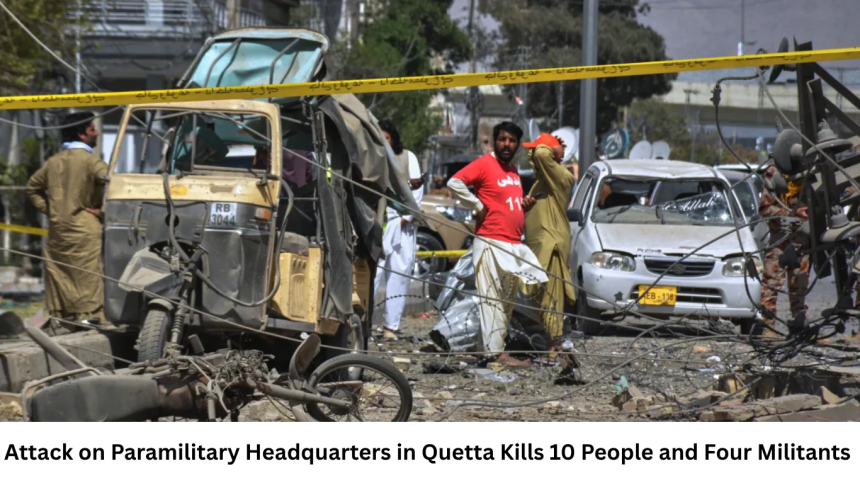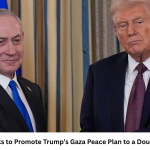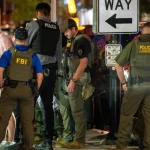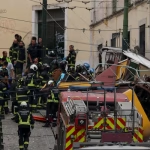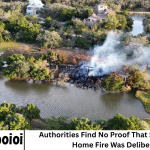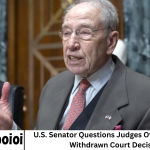A deadly attack on a paramilitary force headquarters in Quetta has left 10 people and four militants dead, shaking the region and reigniting concerns about the persistent threat of militancy in Pakistan’s Balochistan province. The assault, which occurred late in the evening, was one of the most serious security incidents in recent months. It highlights the ongoing challenges faced by law enforcement and military forces in maintaining peace and stability in an area long affected by violence and unrest.
- The Incident Overview
- Response from Security Forces
- Government and Political Reactions
- Background of Militancy in Balochistan
- Civilian Impact and Local Reaction
- Investigation and Possible Motives
- Impact on Security Strategy
- International Reactions
- Economic and Social Implications
- Role of Paramilitary Forces in Balochistan
- Public Sentiment and Calls for Unity
- Counterterrorism Challenges
- Media Coverage and Public Awareness
- The Human Cost
- Efforts Toward Long-Term Peace
- Frequently Asked Questions
- Conclusion
Quetta, the provincial capital of Balochistan, has often been the target of militant and terrorist attacks. The city is strategically significant because of its proximity to Afghanistan and Iran and its role as a hub for regional trade and military activity. This latest attack has once again put the spotlight on the security situation and the broader implications for both local and national stability.
The Incident Overview
The attack began when armed militants launched an assault on the headquarters of a paramilitary force in Quetta. Witnesses reported heavy gunfire and explosions as the attackers tried to breach the facility’s main gate. Security forces immediately responded, and a fierce exchange of fire ensued that lasted several hours.
According to officials, four militants were killed during the operation, while 10 people, including security personnel and civilians, lost their lives. Several others were injured and taken to nearby hospitals for treatment. The injured included members of the security forces who were on duty at the time of the attack and some civilians caught in the crossfire.
Rescue teams and emergency services arrived quickly, and nearby roads were cordoned off as authorities secured the area. Investigators began collecting evidence soon after the gunfight ended, aiming to determine who was behind the attack and how it was planned.
Response from Security Forces
Security forces acted swiftly and effectively to contain the situation, preventing the attackers from entering deeper into the compound. Officials described the operation as complex but well-coordinated, emphasizing the bravery and professionalism of the personnel involved.
After neutralizing the militants, bomb disposal units searched the area for explosives. They later confirmed that the attackers had carried suicide vests and automatic weapons, indicating the assault was premeditated and designed to cause maximum damage.
Senior security officials visited the site after the operation ended and praised the courage of the soldiers who risked their lives to defend the headquarters. Reinforcements were deployed across Quetta to prevent any follow-up attacks or coordinated assaults.
Government and Political Reactions
The federal and provincial governments condemned the attack strongly. The Prime Minister expressed grief over the loss of lives and offered condolences to the families of those killed. He also praised the security forces for their quick response and reaffirmed the government’s commitment to combating terrorism in all forms.
The Chief Minister of Balochistan announced compensation for the victims’ families and promised that those responsible would be brought to justice. Political leaders across the country called for unity in the fight against extremism, emphasizing that such attacks aim to weaken national morale and stability.
Background of Militancy in Balochistan
Balochistan has faced decades of instability due to a combination of separatist movements, sectarian violence, and militant activity. The province’s vast natural resources, combined with its location near international borders, make it strategically significant but also vulnerable to unrest.
Various insurgent groups have carried out attacks on security forces, government installations, and infrastructure projects. Foreign involvement and cross-border movements have further complicated the security landscape. Despite numerous military operations, complete peace has remained elusive.
The recent attack is part of a broader pattern of violence targeting security institutions, which militants often see as symbols of state power. It also reflects the persistent challenges faced by Pakistan in dealing with multiple militant networks operating within and around its borders.
Civilian Impact and Local Reaction
Residents of Quetta described the night of the attack as terrifying. Many heard loud explosions and gunfire that lasted for hours. Families living near the headquarters took shelter inside their homes, fearing for their safety.
After the situation was brought under control, local people expressed sadness and frustration over the recurring violence. Shopkeepers and businesses in nearby areas remained closed the following day as a mark of respect for the victims and due to ongoing security checks.
Community leaders urged the government to strengthen security measures and improve intelligence sharing to prevent similar attacks in the future. The people of Quetta, though resilient, are growing weary of living under the constant threat of violence.
Investigation and Possible Motives
Initial investigations suggest that the attack may have been carried out by a local militant organization seeking to retaliate against recent security operations. Authorities have not ruled out the possibility of foreign involvement or external funding behind the assault.
The attackers appeared to be well-trained and familiar with the layout of the compound, suggesting they had done prior surveillance. The use of automatic weapons and explosives points to a planned and organized operation rather than a random strike.
Security analysts believe the goal of the attack was not only to cause casualties but also to send a message of defiance against ongoing counterterrorism efforts. Investigators are analyzing data from recovered mobile phones, weapons, and communication devices to trace connections and identify the network behind the strike.
Impact on Security Strategy
The attack is likely to prompt a review of existing security measures in Balochistan. Officials are expected to evaluate intelligence-sharing protocols and physical security arrangements around key installations.
Experts also predict a renewed focus on counterterrorism coordination between federal and provincial agencies. Greater surveillance, increased border monitoring, and stricter controls on movement across sensitive regions are likely to follow.
The incident underscores the need for a more comprehensive strategy that includes not only military action but also socio-economic development to address underlying causes of militancy.
International Reactions
Foreign governments and international organizations expressed condolences and support for Pakistan in the aftermath of the attack. Neighboring countries reiterated their condemnation of terrorism and emphasized the need for regional cooperation to counter extremist threats.
Some Western embassies issued statements acknowledging the sacrifices of Pakistani security forces and reaffirming their partnership in maintaining regional stability. Global media outlets covered the incident widely, focusing on Pakistan’s ongoing struggle against militancy and the human cost of such attacks.
Economic and Social Implications
Security incidents like the one in Quetta have a ripple effect beyond immediate casualties. They can undermine investor confidence, slow down development projects, and discourage tourism. Balochistan, despite its rich mineral resources and strategic importance, has often struggled to attract consistent investment due to safety concerns.
Frequent attacks also strain government resources, diverting funds from development to defense. For local residents, the emotional and psychological toll is immense, as each incident deepens fear and uncertainty about the future.
Community organizations have called for counseling and support services for families affected by the violence. Rebuilding trust and normalcy in such areas requires not only stronger security but also compassion and social engagement.
Role of Paramilitary Forces in Balochistan
The paramilitary forces stationed in Balochistan play a crucial role in maintaining law and order. They conduct patrols, guard key installations, and assist in intelligence operations. These forces have been at the forefront of the fight against militants for years, often operating in difficult terrain and under dangerous conditions.
The attack on their headquarters was intended to weaken morale, but officials have stated that it will have the opposite effect. Instead of discouragement, the incident has strengthened their resolve to continue defending the province and its people.
Commanders have assured that security operations will continue with greater intensity to prevent any resurgence of militant activity in the region.
Public Sentiment and Calls for Unity
After the attack, people across Pakistan expressed solidarity with the victims and their families. Social media platforms were filled with messages of condolence and support for the armed forces. Public figures, activists, and community leaders called for unity in the face of terrorism, emphasizing that such acts aim to divide society and weaken national will.
Many citizens urged the government to take long-term steps toward peace by addressing root causes such as poverty, unemployment, and lack of education. These issues often create environments in which extremist ideologies can spread.
Counterterrorism Challenges
Fighting terrorism in a province as large and rugged as Balochistan is a complex task. The area’s mountainous terrain provides hiding places for militants, while cross-border movement adds another layer of difficulty.
Intelligence gathering remains challenging due to the presence of multiple armed groups with different motives. Cooperation between civil, military, and intelligence agencies is crucial to ensure effective operations and prevent future attacks.
Pakistan’s broader counterterrorism strategy has achieved significant success over the years, but isolated incidents like this remind the nation that the threat has not disappeared completely.
Media Coverage and Public Awareness
The attack received extensive media coverage both nationally and internationally. News outlets highlighted the bravery of the security forces and the loss of innocent lives. Analysts discussed the broader implications for national security and regional stability.
Media experts also stressed the importance of responsible reporting to avoid spreading panic or misinformation. Balanced coverage helps maintain public confidence and ensures that the focus remains on facts rather than speculation.
Public awareness campaigns about safety, vigilance, and community cooperation have also been encouraged following the incident.
The Human Cost
Behind every headline and statistic are human stories of loss and courage. Families of the victims mourned their loved ones, many of whom were young men serving their country. Their sacrifice serves as a reminder of the ongoing price paid by those who stand on the front lines of security.
Local communities have organized prayer gatherings and memorials to honor the fallen. Volunteers and non-governmental organizations have reached out to help affected families, providing emotional and material support.
Efforts Toward Long-Term Peace
Restoring peace in Balochistan requires more than security operations. It demands a comprehensive approach that includes economic development, education, healthcare, and political dialogue. Integrating marginalized communities and addressing their grievances can reduce the appeal of militancy.
The government has initiated several development programs in the province, including infrastructure projects and job creation schemes. However, experts say these efforts need to be consistent and transparent to gain public trust.
Local cooperation and confidence-building are key to achieving long-term stability.
Frequently Asked Questions
What happened in the Quetta attack?
A group of militants attacked a paramilitary headquarters in Quetta, resulting in the deaths of 10 people and four militants after a gun battle with security forces.
Who carried out the attack?
Authorities are still investigating, but initial reports suggest involvement of local militant groups operating in the region.
How did the security forces respond?
Security forces responded quickly, contained the attackers, and prevented them from entering deeper into the compound, ultimately killing all four militants.
Were civilians affected?
Yes, some civilians were caught in the crossfire and suffered injuries, and a few lost their lives during the attack.
Why is Quetta often targeted?
Quetta is strategically located and has been a center of political and military activity, making it a frequent target for militant groups.
What measures are being taken after the attack?
Authorities are reviewing security measures, increasing patrols, and improving coordination between law enforcement agencies.
What has the government said about the incident?
The government has condemned the attack, expressed condolences to the victims, and vowed to continue fighting terrorism across the country.
How does this affect Balochistan’s security situation?
The attack highlights ongoing security challenges in Balochistan but also shows the readiness of security forces to respond effectively.
What can be done to prevent such attacks?
Improved intelligence, stronger border control, public cooperation, and socio-economic reforms are key to preventing future incidents.
How are families of victims being supported?
The government has announced compensation for the victims’ families, and local communities are providing emotional and financial support.
Conclusion
The attack on the paramilitary headquarters in Quetta is a tragic reminder of the ongoing struggle against terrorism and the sacrifices made by those who protect the nation. While security forces successfully repelled the assault, the loss of lives underscores the need for continued vigilance and coordination.
Balochistan’s future depends on sustained peace efforts that combine security, development, and social inclusion. Every act of violence tests the nation’s strength, but unity, resilience, and a commitment to justice can guide Pakistan toward lasting peace and stability.


